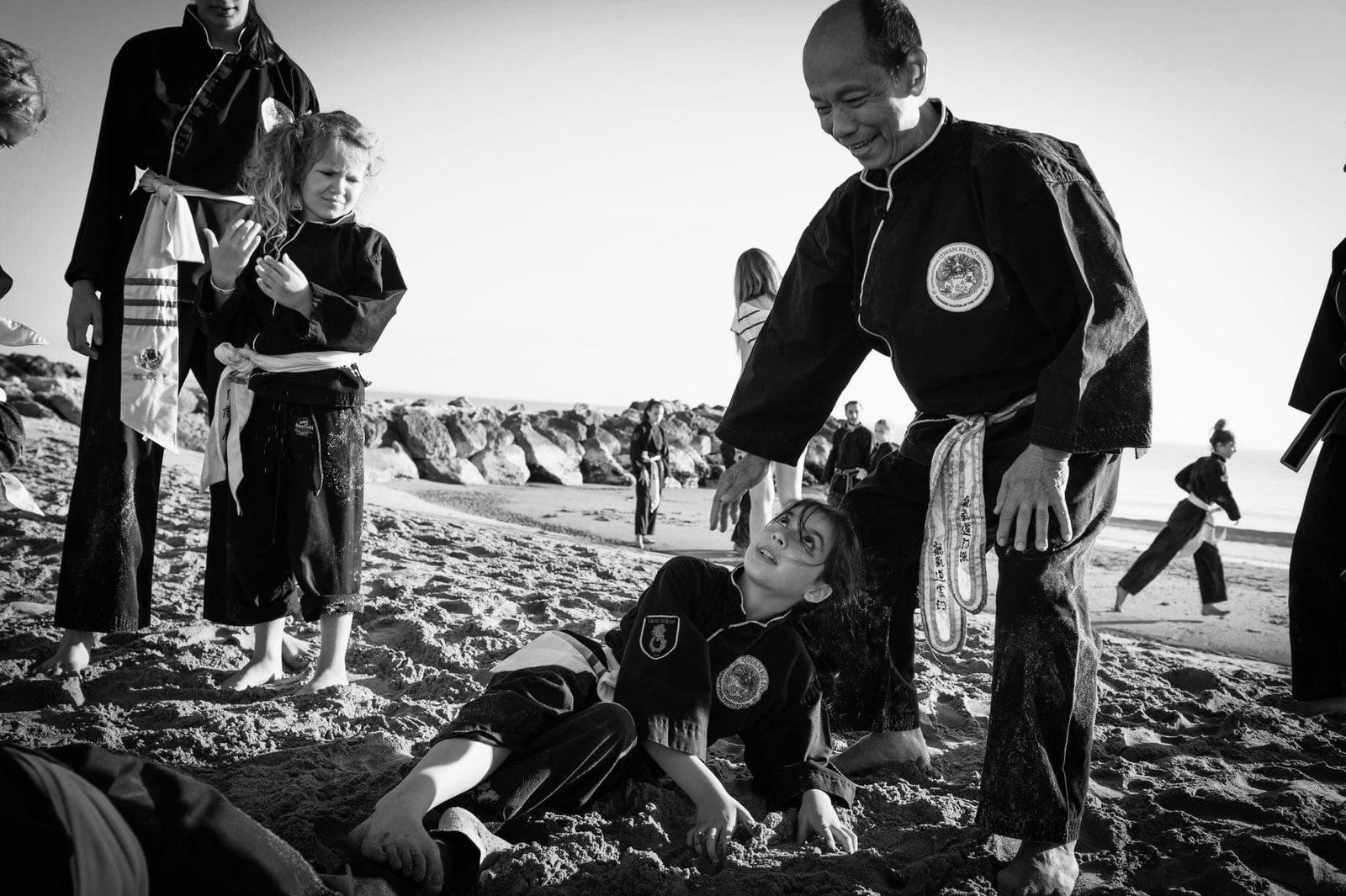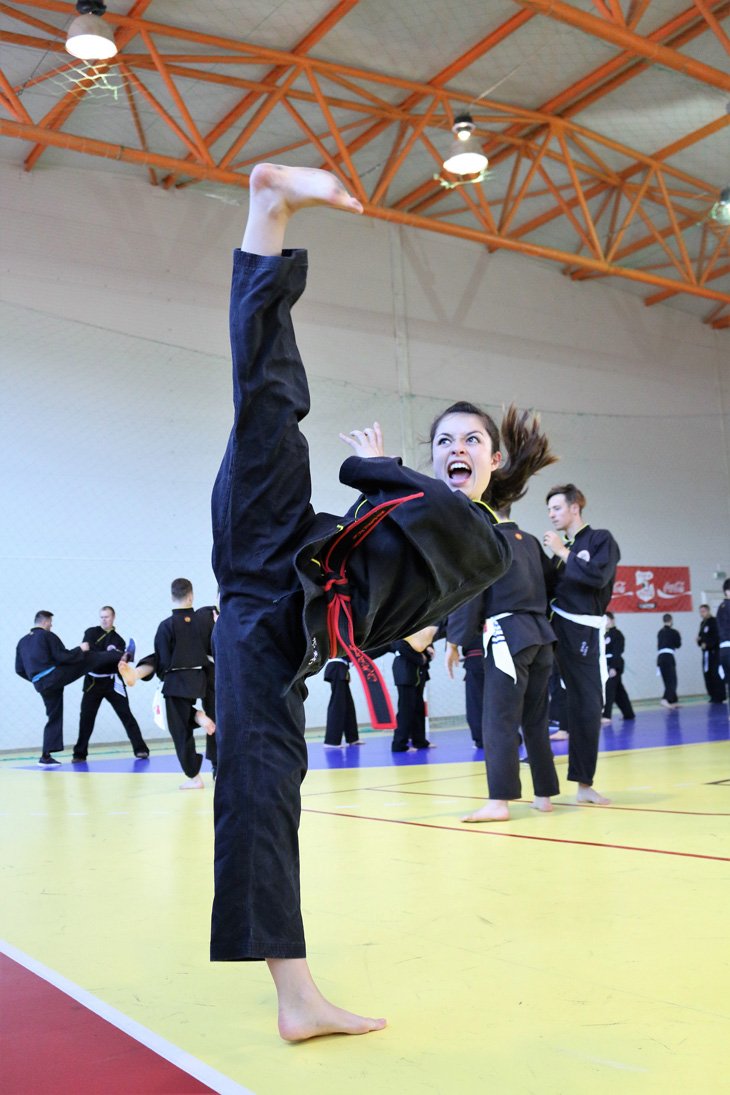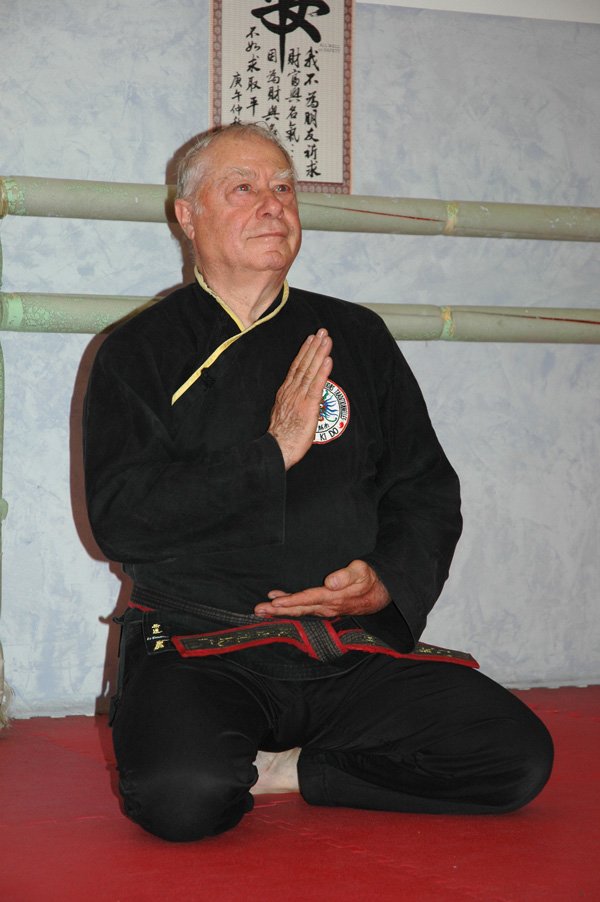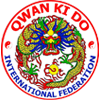Võ Ðạo
Võ Ðạo (or the way of the martial art) is presented as a school of life where the practitioner faces trials to develop dignity and wisdom. This dignity is not limited to reason, but emerges from the heart, the source of unconditional love and savoir-vivre. To be a true practitioner does not mean to be a formidable fighter, but to know how to apply one's skills correctly and at the right moment. Efficiency in the martial art lies not only in victories in competition, but in learning and mastering oneself. The practitioner's sincerity is constantly put to the test, and traditional schools such as Qwan Ki Do are careful to preserve these ancestral values.
Qwan Ki Do is therefore a martial art accessible to people of all ages: children, juniors, adults and seniors.

Children
Children make up a significant proportion of Qwan Ki Do students, attracted by the pleasure of discovering a martial art. Adapted to their age and development, teaching focuses on initiation and preparation for real practice, including physical exercises, educational games (to work on balance, coordination, space management...), and basic techniques. Sessions are shorter than those for adults, and the atmosphere is more relaxed, while respecting ceremonial, tradition and discipline.
The practice of Qwan Ki Do promotes harmonious development, helps to master the body, acquire flexibility and dexterity, and contributes to overcoming shyness and boosting self-confidence. Progress is non-violent, with particular attention paid to balance, perfect movements and respect for partners. Teaching is individualized and evolves according to the progress of each young Vo Sinh, while following the technical program established by Thay Chuong Môn PHAM Xuân Tong.
Young Vo Sinh practitioners can take part in interclub, regional, national and international competitions from the age of 7 (provided they have been practicing for at least one year and are 1st Red Câp). They can choose to take part in Technical and/or Combat competitions.
Adult women
For several years now, women have been showing a growing interest in the martial arts, and Qwan Ki Do is one of them. The exercises in this training program aim to build a harmonious body while promoting mental balance.
Regular practice of Qwan Ki Do effectively develops all muscle groups, strengthens joints and improves the figure. It also improves coordination and body posture.
Defensive and offensive techniques, adapted to the abilities of each practitioner, provide useful reflexes in the event of danger. Breathing and relaxation techniques also contribute to physical fitness and mental well-being.


Seniors
Qwan Ki Do is also suitable for the elderly, thanks to its technical richness. Chronological age is not enough to assess aging, as various criteria such as physical appearance and psycho-intellectual capacities vary from one individual to another.
Practitioners show that you can excel even at an advanced age. The practice of Qwan Ki Do can be adapted to all ages, by adjusting the intensity and type of exercises.
For seniors, training focuses on endurance efforts and gentle techniques, such as “Tâm Thê” mind-body gymnastics.
Acrobatic and violent movements are avoided, and each practitioner is encouraged to moderate his or her efforts according to ability. A non-directive framework allows you to adapt your training to your own limits.
